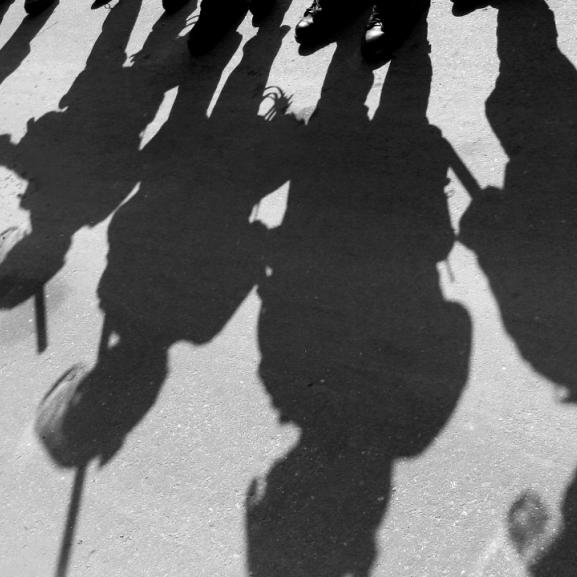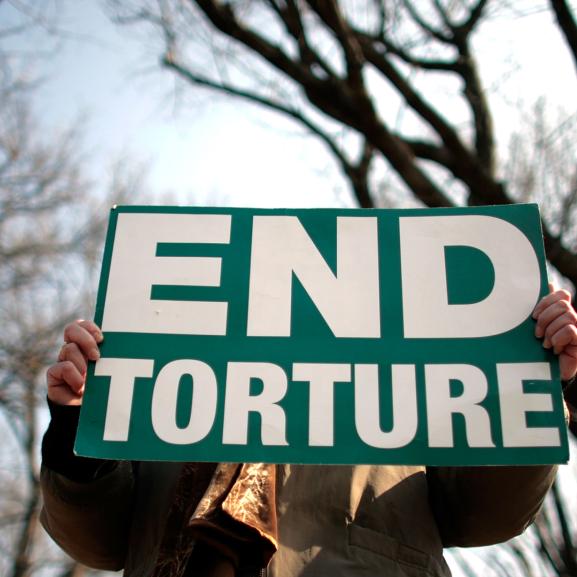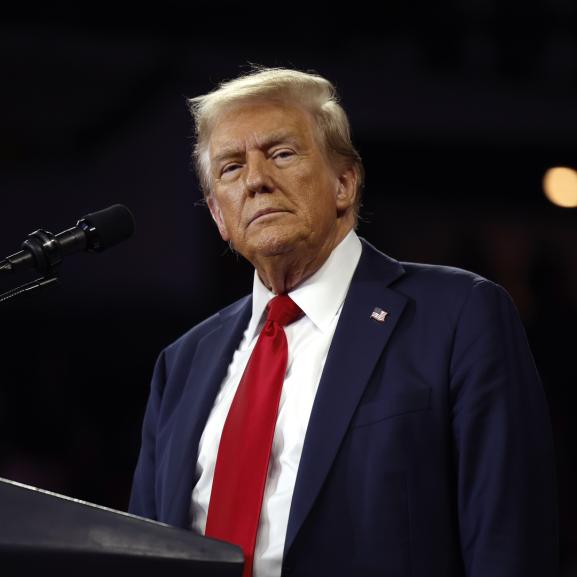Open letter requesting an urgent review of the decision to suspend UK funding for UNRWA
Read Freedom from Torture and REDRESS's letter to David Lammy requesting an urgent review of the decision to suspend UK funding for UNRWA to ensure compliance with the UK’s obligations under the absolute prohibition on torture.
Dear Foreign Secretary
Congratulations on your appointment as Foreign Secretary. We welcome your personal commitment to upholding the international rule of law. As you recently noted, the previous government’s undermining of international law weakened the UK’s foreign policy, leaving us vulnerable to allegations of hypocrisy. It is vital to take early opportunities to demonstrate to the international community the new government’s commitment to respecting the rule of law both at home and abroad and to helping restore the integrity of the international rules-based system.
In advance of your upcoming visit to Israel, we are writing to request an urgent review of the decision by the previous government to suspend funding to the United Nations Relief and Works Agency for Palestine Refugees in the Near East (UNRWA) in light of reports that information provided by the Israeli authorities, on the involvement of UNWRA staff members in the attack on Israel on 7 October, was obtained through torture.
Reliance on information obtained by torture or other ill-treatment is a betrayal of the UK’s obligations to prevent torture, whether committed under the UK’s own authority or by others. We call on you to use your visit to Israel and other diplomatic channels to urgently ensure that any intelligence provided by the Israeli authorities used by the UK to inform its response to this crisis has not been obtained by torture or other ill-treatment.
We are UK based anti-torture organisations. Freedom from Torture provides therapies, forensic documentation and legal and welfare support to survivors of torture seeking protection in the UK. REDRESS is a UK charity that brings legal claims for justice and reparation on behalf of torture survivors around the world. We are highly concerned by soaring reports of torture in Gaza, Israel and the West Bank since 7 October 2023.
On 5 April 2024, we published an open letter to the then Prime Minister concerning reports that information which informed the UK’s decision to suspend funding to UNRWA was obtained by torture. We have not received an adequate response to the serious concerns expressed in that letter.
On 26 January, UNRWA announced an investigation into information provided by the Israeli authorities about the alleged involvement of UNRWA employees in the 7 October attack on Israel. The UK, amongst others, responded within a day by announcing a suspension of future UNRWA funding. On 5 March, the UK requested a plan of action from UNRWA and “commitments that address findings to ensure real change”.
In March, the Reuters news agency, amongst others, reported on the circulation of an unpublished UNRWA report containing claims that the Israeli intelligence was based on information obtained through abuses, including torture of UNRWA staff.
These allegations received extensive press coverage and on 16 April, UNWRA published the report which alleges staff members were subject to “severe physical beatings and treatment akin to waterboarding; beatings by doctors when referred for medical assistance; exposure to and being attacked by dogs; threats of rape and electrocution; threats of violence with guns pointed at them; verbal and psychological abuse; threats of murder, injury or harm to family members; humiliating and degrading treatment; being forced to strip naked and being photographed while they are undressed; and being forced to hold stress positions” while in Israeli military detention.
These allegations have emerged in a context of long-standing use of torture by both Israeli and Palestinian authorities, as well as a serious escalation of abuse since 7 October that has been described by global anti-torture organisations as a “torture crisis”. Further details of reports of torture on all sides since 7 October can be found in our previous open letter to the Prime Minister on this matter. Since the 7 October attack there has been an upsurge in the numbers of Palestinians held in Israeli detention facilities alongside reports of widespread torture at the hands of Israeli military, security and police personnel.
Between us, we know from our varied forms of work with survivors of torture from around the world, including the Occupied Palestinian Territories, that torture causes severe and enduring trauma, with the impacts felt not only by survivors themselves, but also their families and societies.
The inadmissibility of evidence obtained through torture in any proceedings is set out in Article 15 of the UN Convention Against Torture, to which the UK is a State Party, and it is also a rule of customary international law. In a 2005 landmark ruling, the UK House of Lords (judicial branch) confirmed the long history of the exclusionary rule under domestic law. In his lead judgment, Lord Bingham of Cornhill described torture evidence as “unreliable, unfair [and] offensive to ordinary standards of humanity and decency” and confirmed that the English common law had viewed "torture and its fruits" with abhorrence for more than 500 years.
This bedrock principle should guide the UK’s response to any information that may have been obtained by torture or other ill-treatment, not just in formal proceedings but in “any formal decision-making by State officials”. In line with this, the UK has rightly taken the position that “...receipt of intelligence should not occur where it is known or believed that receipt would amount to encouragement to the intelligence services of other States to commit torture”. Guidance on this is set out in “The Principles relating to the detention and interviewing of detainees overseas and the passing and receipt of intelligence relating to detainees”.
The absolute prohibition on torture is a foundational norm of the rules-based international system, and the rule against use of torture evidence is both an essential component of the absolute ban and an important means of ensuring it is not violated. At this critical moment, the UK must demonstrate principled global leadership and safeguard the credibility of its torture prevention efforts by ensuring that the prohibition is consistently upheld.
This should include positive steps to prevent and punish torture, whether involving UK personnel or not, due diligence to ensure that the UK does not make use of any evidence where there is a real risk that it has been obtained through torture or other ill-treatment, and corrective action when it subsequently emerges that reliance on such evidence has occurred. Any indication of a selective approach risks an erosion of the global torture ban that will have ramifications well beyond the crisis in Israel and the Occupied Palestinian Territories.
Your appointment as Foreign Secretary brings opportunities to restore the UK’s global reputation for upholding the absolute prohibition on torture. In this regard, we urge you to:
- Immediately and publicly condemn torture on all sides of the conflict in Israel and the Occupied Palestinian Territories;
- Ensure that the UK takes no receipt of, and makes no use of intelligence provided by Israel or other authorities where there is a real risk that it has been obtained by torture or other ill-treatment;
- Urgently review the decision to suspend UK funding for UNRWA to ensure compliance with the UK’s obligation not to use evidence obtained via torture or other ill-treatment as a basis for formal decision-making and not to acquiesce in torture by other states;
- Immediately raise concerns with the relevant Israeli authorities about reports of torture and other ill-treatment being used to obtain intelligence and call on the said authorities to investigate such allegations, ensure perpetrators are held to account and provide redress for survivors and victims;
- Publicly repudiate reliance on intelligence material and/or “confessions” obtained using torture;
- Refrain from any actions or statements which risk being seen as encouraging or condoning torture, including by allies of the UK;
- Urgently call for independent monitors and lawyers to have access to Palestinians in Israeli detention facilities;
- Work with the international community to ensure that perpetrators of torture are brought to justice in line with international standards and that survivors and victims of torture receive reparations including realisation of their right to rehabilitation;
- Reaffirm the eradication of torture as a vital goal of UK foreign policy.
Thank you in advance for your consideration of this important matter. We look forward to receiving your response.
Yours faithfully
Sonya Sceats (Chief Executive Officer, Freedom from Torture(
Rupert Skilbeck (Director, REDRESS)






